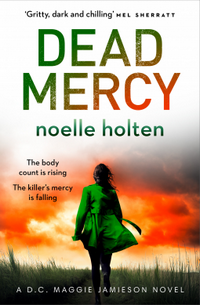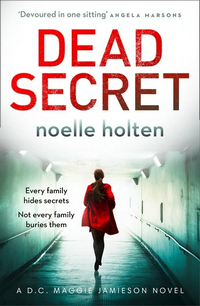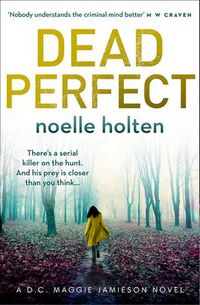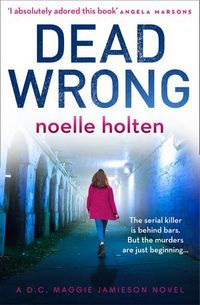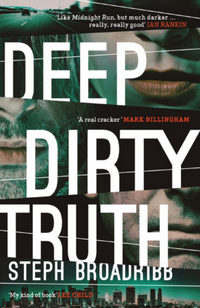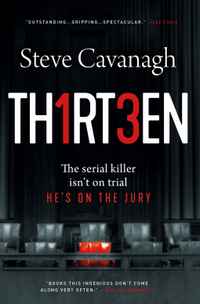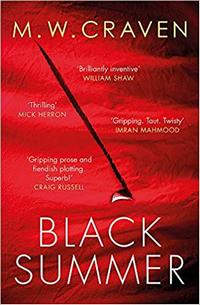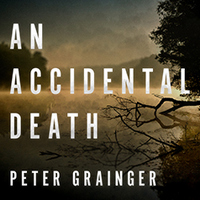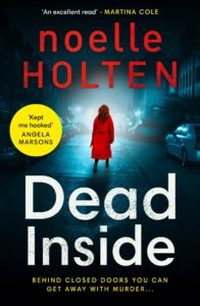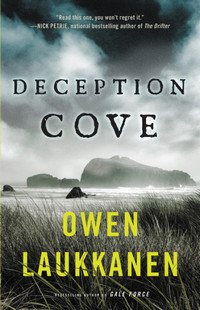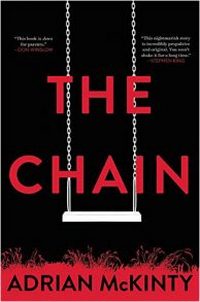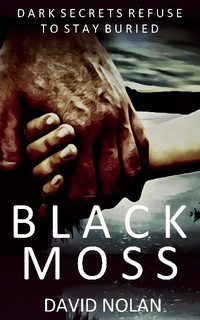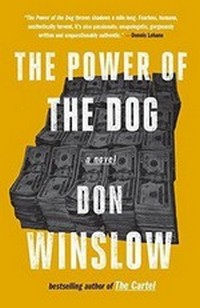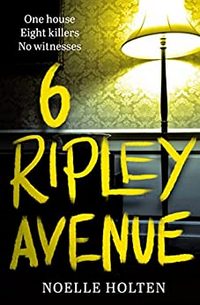 6 Ripley Avenue
6 Ripley Avenue
DETAILS: Publisher: One More Chapter Publication Date: September 27, 2022 Format: eBook Length: 378 pg. Read Date: October 6-11, 2022
When you’re given the opportunity to confront your mother’s killer, do you take it?
I did.
No words were spoken though.
I just killed him.
Was it worth it?
Absolutely.
Do I have any regrets?
Only that I didn’t make him suffer longer.
What’s 6 Ripley Avenue About?
6 Ripley Avenue is a Probation Hostel—similar to what we call a halfway house in the U.S.—focusing on probationers convicted of violent crimes (including murder). It’s been plagued by controversy since before its opening two years ago. The concerns go beyond the typical NIMBY protests because of the violent nature of the residents.
Sloane Armstrong, a freelance investigative journalist, and Helen Burgess, an elderly woman who lives next door to the house, have been at the forefront of the effort to move and/or close Ripley House Approves Premises from the start. Their friendship was forged by this effort but has grown since then.
Now, a resident there—a convicted murderer—has been killed. The investigation into the murder highlights many of the concerns Helen has voiced and Sloane has published—poor staffing levels, inadequate security, malfunctioning CCTV, and more. Helen and Sloane see this as their opportunity to close the facility once and for all and work to uncover as much as they can about the crime and the systemic problems it exposes as possible for their purposes.
On the other hand, Jeanette Macy is the Senior Probation Officer on staff—she learns of the same problems (and more) during the investigation and sees this as the opportunity to improve things both at Ripley House and throughout the system.
The narrative bounces between the perspectives of these women as they investigate the happenings of that fateful night and interact with each other and the police during the inquiry. Will any of them be fast enough in their investigation to ensure the murderer is caught in time to save more lives?
It’s almost a locked-room mystery—but if you can’t trust the locks on the room…
The Prologue
I see a lot of hate/antagonism toward Prologues online lately. I’m not sure I get it, but if people want to skip them, I guess that’s their prerogative. However, anyone who is anti-prologue probably hasn’t read a Noelle Hotlen prologue—they’re consistently very good. This is one of her best—it’s not Dead Perfect—good, but it’s close.
If you read this book, don’t gloss over/skim/skip it.*
* I think that should apply to Prologues/Epilogues in general, but whatever. You do you.
On the Other Hand…
I think the last two chapters could be cut and the book would be stronger. I get (I’m pretty sure) the impulse for them, and they do make sure that some of what was suggested/implied in the text was nailed down. I also wonder if she answers a question or two that would be better left lingering. But I think most readers would either assume almost everything contained there—or wouldn’t care. It’s like watching deleted scenes from a movie and thinking “yeah, that was good to see, but I see why it didn’t make the final cut.”
Okay, the last six paragraphs of the penultimate chapter—they’re a distinct section—would’ve made a good, punchy last chapter on their own. But the rest felt like overkill.
Your results may vary, and it’s not like these chapters hurt the book significantly. But for me, they took a little of the luster off.
So, what did I think about 6 Ripley Avenue?
“Sometimes the places where you are meant to be safe are the ones you should fear the most.”
The violence in this book centers on those places you’re meant to be safe—home and family—and what happens when that safety is disrupted. The whodunit of the novel is the focus—but there’s a lot said about the ripple effects of (many, but not all, of) the crimes talked about. How the repercussions of a moment of violence or other dangerous choices are long-lasting and alter the lives of those only indirectly affected by them. Crime Fiction in general is getting better at showing this, and few do it as well as Holten does.
Holten’s signature style of terse chapters and paragraphs is well-evident here,* jumping from perspective to perspective to make sure the plot is always steadily advancing. This makes the pacing almost relentless and it’s hard to put the book down, no matter what the reason for doing so may be. I’m not saying that I burned any meal or let a pot boil over while reading this, but I’d absolutely understand why someone would. Thankfully, the style also makes it incredibly easy to pick back up and get fully immersed in the story immediately. You could easily read 6 Ripley Avenue in one sitting without intending to.**
* Really, does she draft on cocktail napkins? What would happen if she invested in a couple of reams of 8.5 x 11/A4?
**The fact that it took me as long as it did to read this is a commentary on my schedule this month, not the book.
The only problem with the pace is that we don’t get quite enough time to see enough of Helen and Sloane’s friendship—it’d be easy to see their relationship as Sloane exploiting the lonely woman for ammunition and Helen as desperate for an emotional connection. That’s what I saw it as initially. But as the novel progresses, we see actual affection between the two and it’d have been nice if circumstances had allowed us to see more of it. On the other hand, things do allow the reader to change their initial impression of Jeanette over the course of the novel (at least this one did).
This is one of those novels that is strengthened by the use of multiple POVs—the overlapping motives, agendas, and methods of the women looking into the crime and its repercussions, sometimes in alignment, sometimes at odds, but leading to getting at the truth was really well done. I’m not sure that, outside of the first bit of narrative from the Killer’s point-of-view that having their perspective present is that helpful—but I’d say that about at least 98% of those that I’ve read, so take that comment with a boulder-sized grain of salt.
This standalone solidifies Holten as an auto-buy for me, it’s a pleasant departure from Holten’s series work, displaying her already visible strengths and giving her a chance to show new ones. 6 Ripley Avenue is a fast, compelling, read that will stay with you for a while—you can’t ask for more than that.

![]()




 Grab a book, any book.
Grab a book, any book.